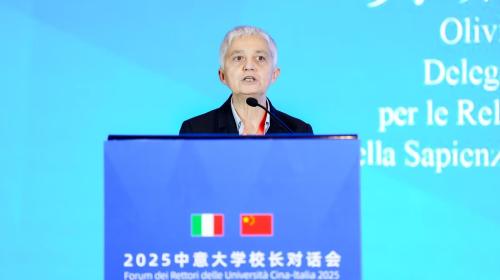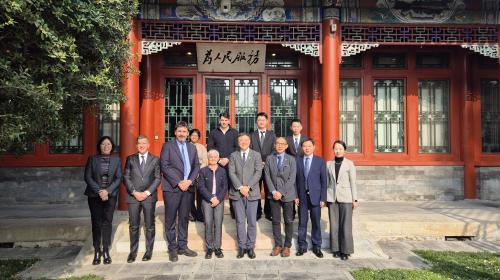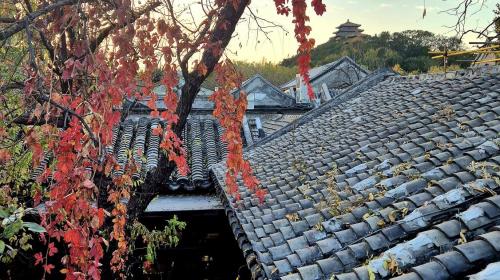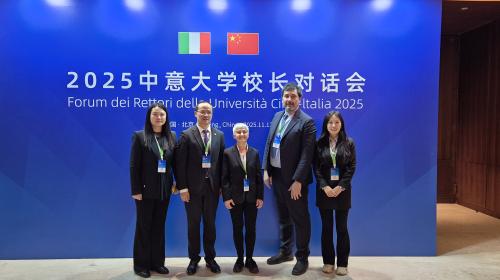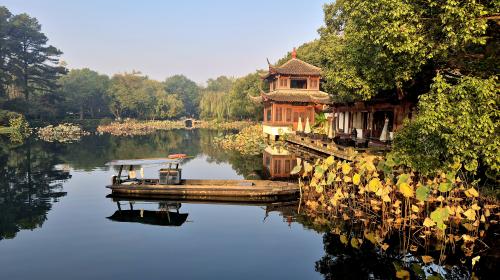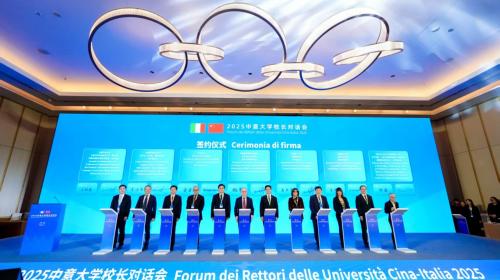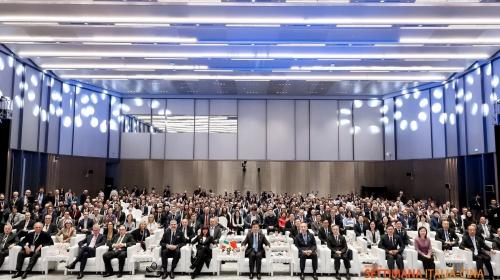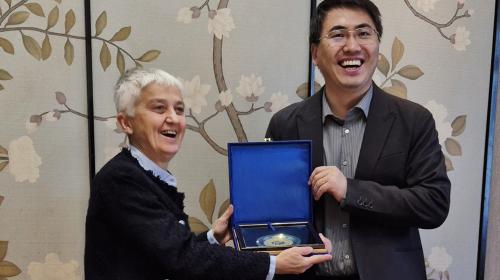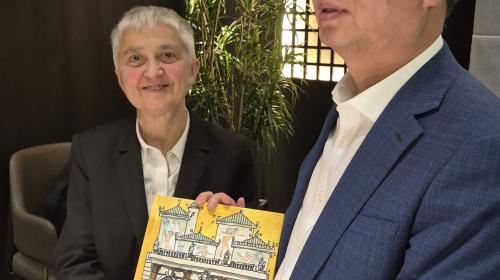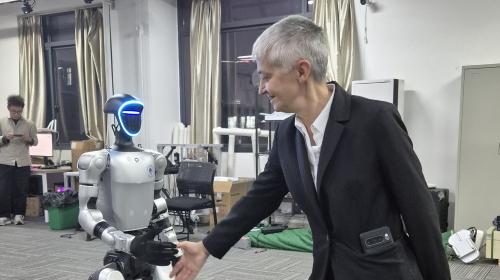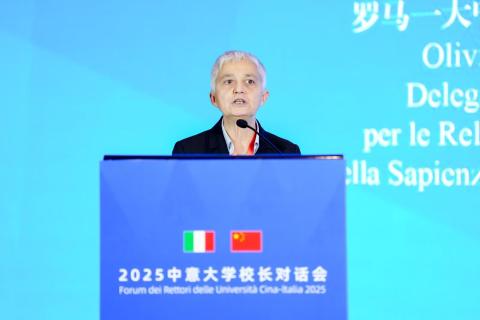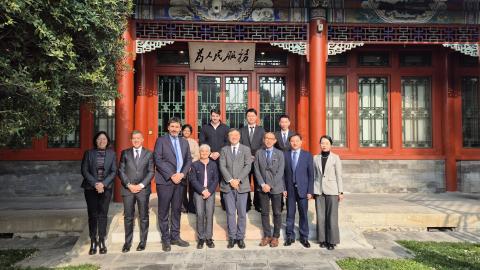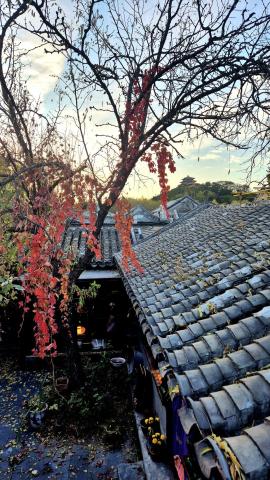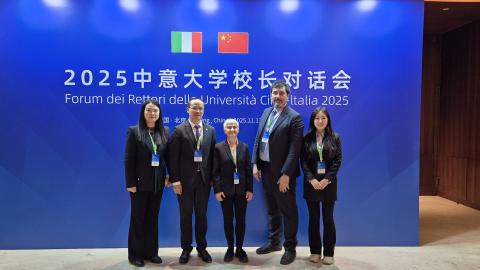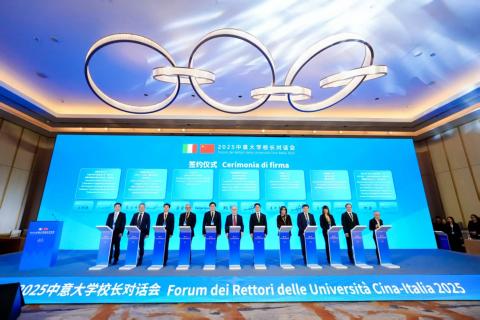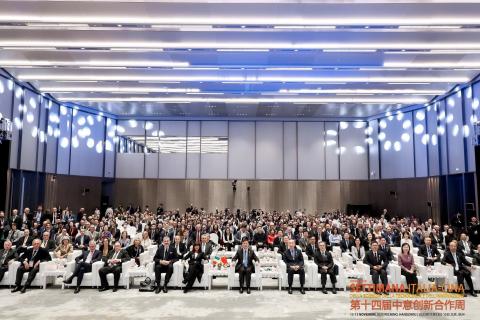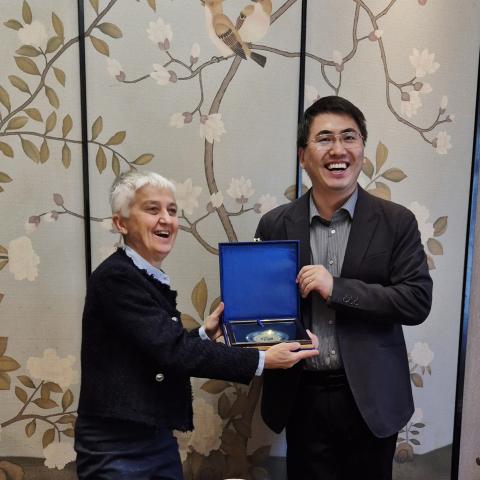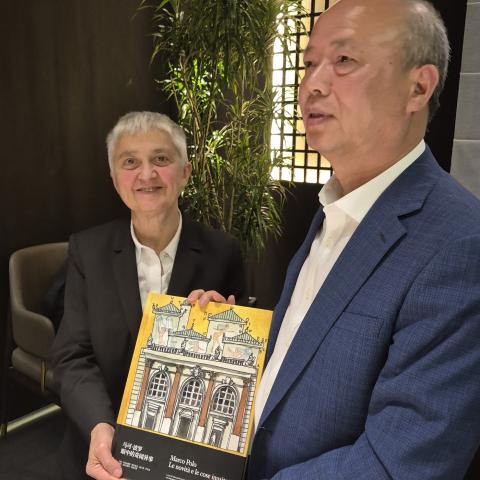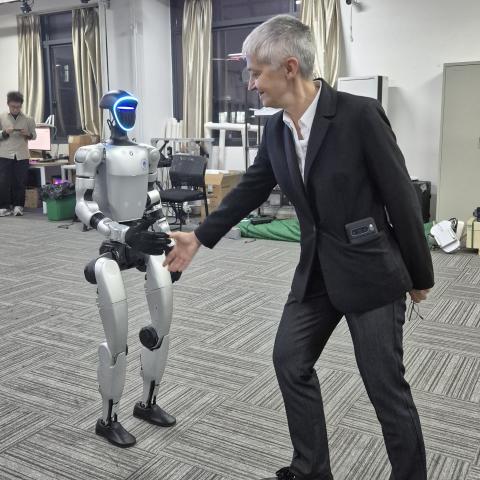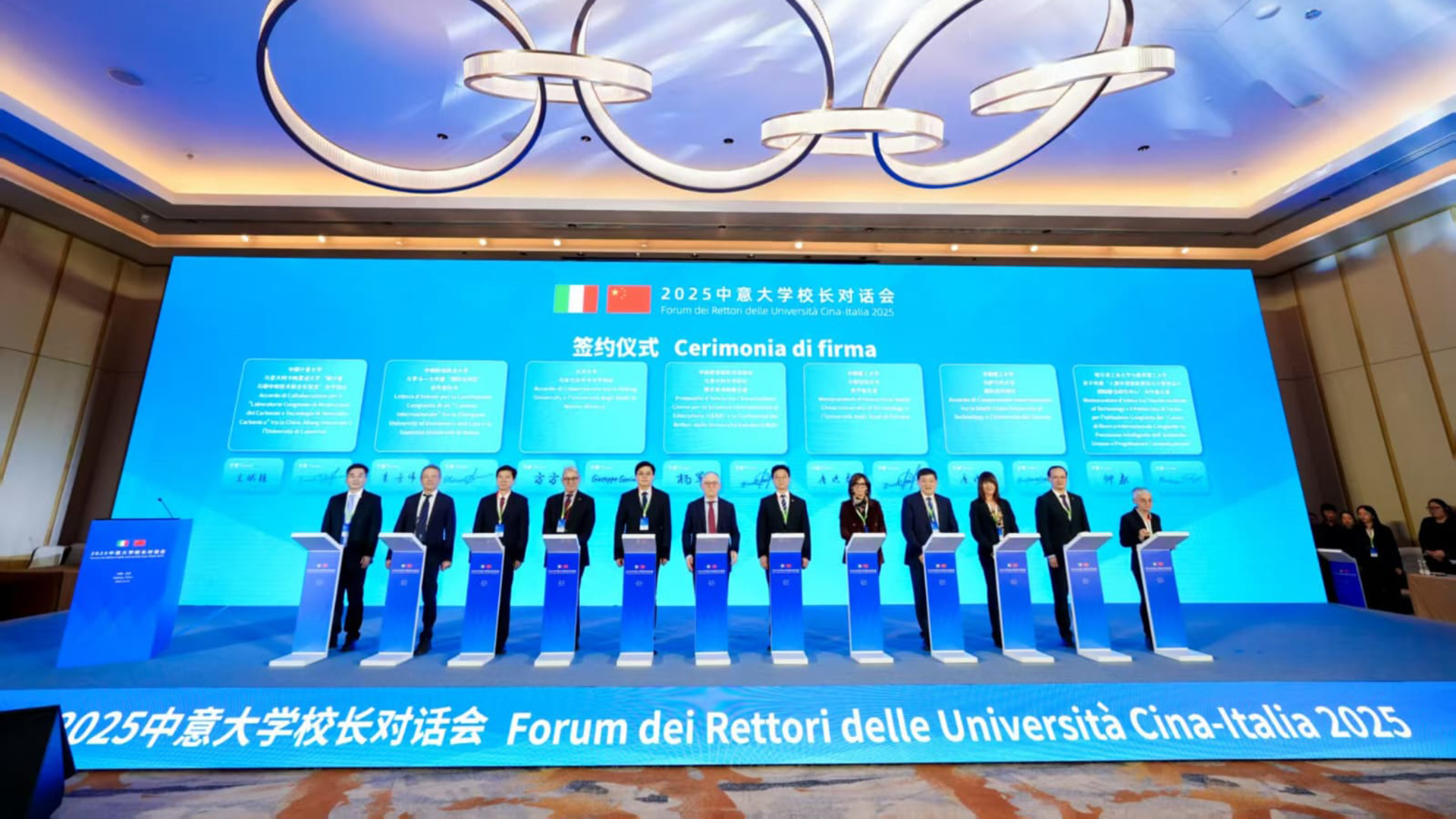
PoliTO the China–Italy University Presidents’ Forum
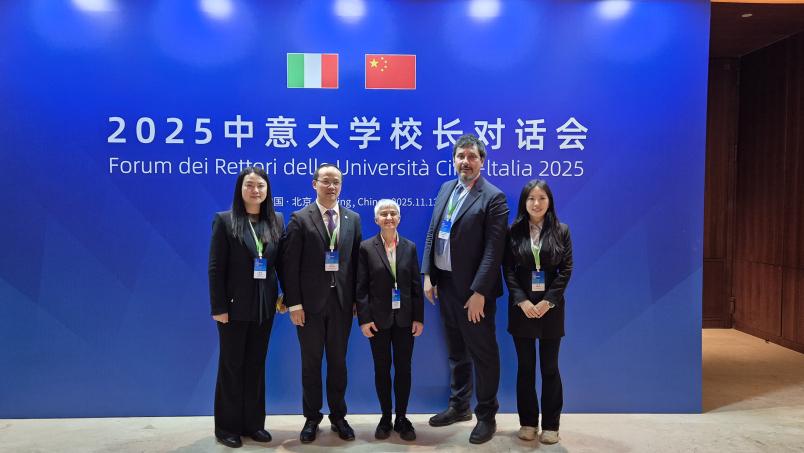
On the occasion of the China–Italy University Presidents’ Forum and the 14th Week of Science, Technology and Innovation (12–15 November)—inaugurated by Italy’s Minister of University and Research Anna Maria Bernini together with the Chinese Ministers of Education and of Science and Technology—a delegation from PoliTO took part in several activities in China. The delegation was led by Deputy Rector Elena Baralis, accompanied by Michele Bonino, Director of the Department of Architecture and Design (DAD), and Francesco Novelli, Co-Director of the China Center Polito.
During the Beijing leg, Prof. Baralis spoke at the 2025 China-Italy University Presidents’ Forum in the session “Promoting Integration and Interdisciplinary Development to Jointly Address Global Challenges.” During the event, and in the presence of the Italian and Chinese ministers, a new agreement was signed between PolITO and the prestigious Chinese university HIT – Harbin Institute of Technology, aimed at creating a joint engineering laboratory. This initiative expands the network of collaborations already underway in Architecture, including the Co-Run Program (a joint bachelor’s degree) in Smart Building and Construction and the Ministry of Science and Technology Laboratory in the field of Urban Regeneration. The latter currently involves the two universities in the preliminary design phase for a new university campus in Mudanjiang, in northern China.
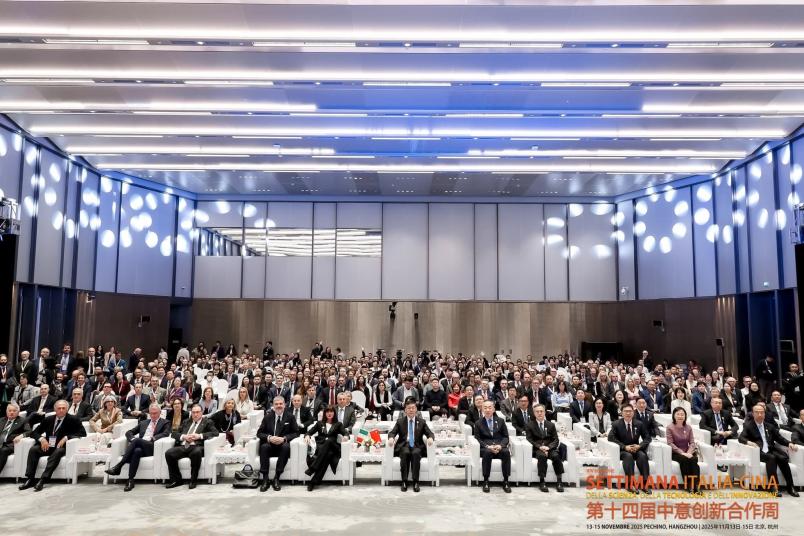
The Italian Cultural Institute also organized, with the involvement of the Italian rectors present, a seminar on PhD opportunities between Italy and China. Ca’ Foscari University and Politecnico were selected to present their best practices, thanks to the contributions of former doctoral candidates. Representing PoliTO, Giorgia Cestaro offered insights into her experience in the Joint PhD in Architecture with Tsinghua University.
The visit to Beijing also provided an opportunity for an institutional meeting at Tsinghua University, a long-standing partner of PoliTO and one of the most prestigious universities in the world, currently undergoing a significant interdisciplinary reorganization. Discussions focused on potential joint initiatives in smart mobility, integrating technology, infrastructure, and urban design. The meeting also addressed progress on the upcoming exhibition dedicated to Andrea Palladio—scheduled for the first half of 2026 in Beijing and the first ever in China dedicated to the renowned Italian architect—promoted by the Embassy of Italy and curated by the Politecnico di Torino – DAD, Tsinghua University, the CISA Palladio Study Center, and Treccani Institute.
The mission then continued to Hangzhou, where Professor Novelli took part in the China-Italy Week of Science with a talk titled “Artificial Intelligence for Restoration and Planned Conservation: Shared Perspectives for Sustainable Heritage Protection.” The delegation also visited Zhejiang Sci-Tech University—specifically its Robotics and Microelectronics laboratories—and Zhejiang University, China’s fourth-ranked university, with which PoliTO recently signed a Memorandum of Understanding.
The mission took place at a delicate yet promising moment for Italy–China relations, following the visits of President Mattarella and Prime Minister Meloni in 2024 and, more recently, the meeting in Rome between Italy’s Foreign Minister Antonio Tajani and China’s Foreign Minister Wang Yi. In a global context marked by political and economic uncertainties—but also by renewed openness between the two countries—Education and Culture have a key role to play in fostering international collaboration.
“In a time of general political and commercial uncertainty, but also of broad and constructive openness between our two countries, education and culture can play a leading role in international exchange. China, with its universities, businesses, and institutions, remains a partner of primary importance for our university,” commented Deputy Rector Elena Baralis. “Compared to the pre-pandemic period, when China's interest in Western partners was broader, today the fields of collaboration are narrowing and becoming more specific and sophisticated. This is interesting because it opens up interdisciplinary areas, straddling architecture and engineering, such as the relationship between heritage and digital technologies or mobility and smart infrastructures,” added Professor Michele Bonino.
